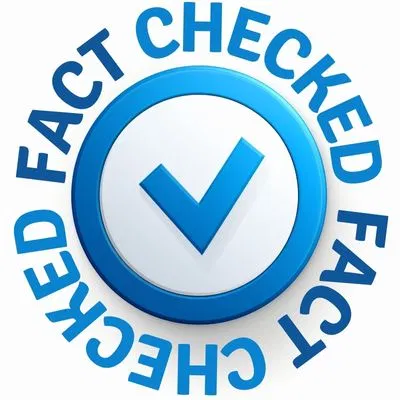SERP Monitoring for Small Businesses: The Ultimate Guide

Published November 8th, 2023
In the digital world, your ranking on search results impacts your online presence. Small businesses need to excel at SERP monitoring to navigate SEO, boost visibility, and grow.
Search results shift due to algorithm changes and competition. Using the right SERP tool helps gauge performance, track competitors, and adjust strategies.
This guide breaks down SERP monitoring, helps you find the right tool, and shows you how to track results. Whether you’re a beginner or a seasoned marketer aiming for the top, use this guide for SERP success.
Ready to tackle the SERP challenge? Let’s get started!
Understanding SERP Monitoring
Navigating search engines can seem complex, but with the right know-how, they’re a valuable business tool. SERP monitoring is essential to unlocking this potential.
Let’s dive in and see how it can transform your business.
What is SERP Monitoring?
SERP monitoring shows where your website ranks for certain keywords, letting you see your online presence and SEO performance.
Why is this important? Think about SERPs’ two main parts – organic search results and Pay-Per-Click (PPC) ads.
Organic results show up based on their match with search terms, while businesses pay for PPC ads. Although both are important for driving traffic, organic results usually get most of the clicks.
Imagine your website ranking on the SERP’s first page, especially in the top five. This prime spot can boost your visibility, increase clicks, and drive conversions.
So, SERP monitoring matters. It shows where you rank and guides your path to the top.
The Evolution of SERP
SERPs have changed over time, moving from basic text to varied listings that enhance user experience.
Here’s a quick look at key SERP features:
- Knowledge Panels: Boxes on the right side of the SERP give a quick overview of important information, ideal for brand or entity searches.
- Rich Snippets: Unlike regular snippets, these offer extra details like ratings, prices, or images, making them attractive and informative.
- Paid Results: These ads, labeled ‘Ad’, appear at the top or bottom of the SERP and come from PPC campaigns.
- Global Results: These standard organic listings are the heart of the SERP, driving most organic traffic to websites.
As SERPs grow more user-centric and competitive, a trustworthy SERP monitoring tool becomes vital. It helps track rankings, study competitors, and plan for top-page positions.
Regular SERP tracking is key in a constantly changing digital world. With the right SERP monitoring, you stay ahead of competitors and set the stage for online success.
Key Metrics to Monitor SERP Performance

Understanding your website’s performance on Search Engine Results Pages (SERPs) is pivotal for SEO success.
Here are nine key metrics to keep track of for improved rankings and visibility.
- Organic Traffic: Measures the visitors your site attracts through organic search results. It shows how well your SEO is working.
- Bounce Rate: The percentage of visitors who exit after viewing just one page. If it’s high, your site might not match the keyword relevance.
- Keyword Ranking: The position of your site in search results for a particular keyword. This tells you about your online visibility.
- Click-Through-Rate (CTR): The ratio of users who click on your site after spotting it in search results. Higher CTRs suggest effective titles and descriptions.
- Website Authority: Gauged by Domain or Page Authority, this shows your site’s credibility and its chances of ranking well.
- Backlinks: Your SERP rankings depend on both the number and quality of backlinks. Quality backlinks boost authority and rank.
- Conversion Rates: The ratio of visitors who take desired actions, like buying or signing up. High rates indicate strong SEO and user experience.
- Time Spent on Page: The duration visitors stay on your page. Longer durations hint at engaging content.
- Page Speed: How fast your content loads and becomes interactive. Quick-loading pages offer better user experience and help with rankings.
Top Tools for SERP Monitoring
Tracking your website’s rank on search engine results pages (SERPs) is crucial for digital success. This reveals the impact of your SEO tactics and pinpoints areas for refinement.
Here’s a list of top SERP tools, each with unique benefits for boosting your online footprint:
SE Ranking
Agency-tailored toolkit for seasoned SEO professionals. SE Ranking obtains SERP data for any keyword, allowing you to comprehend what’s behind top-ranking pages.
Pros: Extensive SEO tools, including rank tracking and audits. Ideal for small businesses.
Cons: Their more advanced tools come at a premium.
SEMrush
Offers in-depth insights into website metrics, rival tactics, and keyword exploration.
Pros: Comprehensive tools for keywords, competitor insights, and audits. Detailed SERP reports.
Cons: Pricey for smaller ventures. Steep learning curve for novices.
MonsterInsights
A robust WordPress plugin linking your site to Google Analytics.
Pros: Easy integration with Google Analytics. Track SEO metrics on your WordPress dashboard. Real-time stats and e-commerce tracking.
Cons: Limited features in the free version. Complex data may confuse beginners.
Ahrefs
An all-rounded SEO tool favored by marketers to enhance website visibility and monitor digital footprints.
Pros: Deep insights into competitor backlinks and keywords. Renowned for precise data and extensive backlink index.
Cons: Higher cost. Doesn’t integrate with websites, necessitating manual work.
SERPWatcher by Mangools
Part of the Mangools suite, it offers daily rank tracking and more.
Pros: User-centric with features like daily tracking and mobile vs desktop analysis.
Cons: Limited features. Costs rise if you need their extended SEO tools.
Serpstat
An integrated tool aiming to boost online visibility and decode competitor methods.
Pros: User-friendly interface. Packed with features like keyword analysis and competitor insights.
Cons: Some report data isn’t as current or precise as other platforms.
Google’s Updates: Key Tips for Small Business SERP Monitoring

In the dynamic SEO landscape, it’s vital for small businesses to keep abreast of Google’s newest updates to excel digitally.
Here are key SERP monitoring tips specifically for small businesses:
- Identify SERP Feature Opportunities: Find keywords that align with SERP features like featured snippets, local packs, and knowledge panels.
- Prepare for Core Updates: Keep track of Google’s core algorithm changes, evaluate their impact on your site, and adjust your approach as needed.
- Regularly Review Your Website: Check your website pages for updates and fix errors. Review important pages more often.
- Improve On-Site SEO: Focus on on-site SEO. Optimize meta tags, increase site speed, and make sure your site works well on mobile.
- Monitor Google Business Profile: For those targeting local audiences, make sure your Google Business Profile is up-to-date and visible.
- Understand SERPs: SERPs are more complex now. Know their different elements and how they affect your visibility.
- Track Internal Site Search Queries: Use internal search data to find keyword opportunities and adjust your content.
- Use a SERP Rank Tracker: Stay on top of your search engine rankings by tracking, analyzing, and improving your SEO.
Remember, Google updates its algorithm often. Keep up with these changes to make sure your SEO strategy works.
To conclude, mastering SERP monitoring is crucial for small business success online.
By tracking keyword rankings, adjusting to algorithm changes, and improving your online presence, you can stand out, beat competitors, and engage your audience effectively.
Keep in mind, SERP monitoring never stops. The insights you get from it will keep driving your business forward in the ever-evolving search engine world.
Stay alert, stay updated, and let your small business soar online.
Frequently Asked Questions
To make your journey smoother, we’ve compiled a list of Frequently Asked Questions tailored to address common queries and concerns.
How often should I check SERP for my small business?
Check SERP weekly or monthly to see keyword rankings and trends. However, check more frequently during big campaigns or after major Google updates.
How do I pick the best keywords for SERP tracking?
Use tools like Google Keyword Planner or your SERP tool to find keywords that match your business, focusing on a good balance of search volume and competition.
Are there free SERP tracking tools?
Many tools offer free trials, but full SERP monitoring often requires a paid plan. Google Search Console, though, offers free insights on your site’s performance in Google searches.
What should small businesses avoid in SERP monitoring?
Avoid overlooking mobile optimization, local SEO, not updating content regularly, and technical SEO issues. Monitoring and fixing these regularly helps dodge these issues.
How soon can I see results from my SERP tracking?
Results from SERP tracking vary by industry competitiveness, content quality, and SEO strategy. Some see changes in a few months; for others, it takes longer. Consistency is key.
Boost your SERP position with Correct Digital!
Ready to up your SERP game? Delve into SEO with Correct Digital’s top strategies. Whether you’re a local small business or aiming globally, our SEO solutions keep you ahead. Don’t just watch SERPs—rule them!
Hire The Digital Marketing Experts
We take online businesses and turn them into online empires by employing smart digital marketing strategies. Our team of experts are trained in a myriad of marketing skill including SEO to help you rank higher in search results, and ad management to ensure your message gets seen by the people you want. Need a business website that attracts business? We also specialize in website design and online sales optimization to help your business grow like never before.

This Content Has Been Reviewed For Accuracy By Experts
Our internal team of experts has fact-checked this content. Learn more about the editorial standard for our website here.

About The Author
Judy Ponio is a professional writer and SEO specialist based in the Philippines. She works hard to cross check reputable sources to ensure her work uses accurate facts. She is the lead author for several prominent websites covering a variety of topics including law, health, nutrition, and more.



